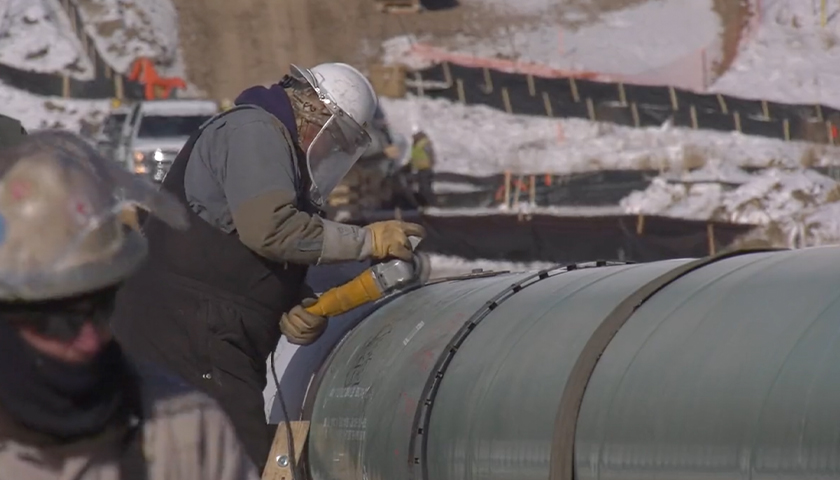by Scott McClallen
Is the Line 5 pipeline an essential source of energy or is it an environmental hazard?
Since 2019, Michigan Gov. Gretchen Whitmer and Attorney General Dana Nessel have sought to shut down Line 5, which has been pumping about 540,000 gallons of hydrocarbons daily across the lakebed of Lake Michigan since 1953. Whitmer and Nessel say they fear a spill similar to the 2010 oil spill near the Kalamazoo River – the largest inland oil spill in U.S. history.
Nessel cited a recent report as support that “Michigan does not need Line 5.”
Nessel cited a report prepared by economic and industrial logistics experts PLG Consulting that said that “energy markets will adapt – as they have always done and continue to do – in the event that Line 5 is shut down. With advance notice, the markets can be expected to do so without supply shortages or price spikes.”
“Enbridge has known of the possibility of a Line 5 shutdown for years, and yet they have consistently claimed that a shutdown would cause an economic catastrophe,” Nessel said in a statement. “The truth is that Enbridge and the companies that receive oil and gas from Line 5 have had ample time to prepare contingency plans. The failure to do so would be professional malpractice.”
Many others disagree.
The pipeline transports light crude oil, light synthetic crude and natural gas liquids used to heat homes and businesses and fuel vehicles. Line 5 supplies 65% of propane demand in the Upper Peninsula, and 55% of Michigan’s statewide propane needs.
Michigan is among the top five states in residential sector petroleum use and ranks first in residential sector consumption of propane, according to the U.S. Energy Information Information Administration.
The Mackinac Center for Public Policy says if Line 5 is shut down, then about 23,000 households in the Upper Peninsula will be vulnerable to price spikes because of supply shortages during the winter.
Switching to electric heat would increase each household’s costs between $3,400 and $3,900 per year. In addition, the transition from propane heaters to heat pumps could cost propane-using households across the U.P. more than $25,000 each.
Canadian company Enbridge, which owns and operates Line 5, has planned a $500 million project to remove the current pipeline to a tunnel constructed 100 feet below the surface of the lake bed. Enbridge’s Great Lakes Tunnel Project was approved during the administration of former Republican Gov. Rick Snyder.
Isaac Orr, policy fellow at the Center of the American Experiment and co-author of the Mackinac report, said “The pipeline is an essential source of energy for Michigan.”
Experts interviewed by The Center Square say shutting down the pipeline would shift oil transportation to more costly and less efficient methods, like by rail or truck, that could lead to higher emission output relative to using the Line 5 pipeline.
The Center Square previously reported it would take 2,150 trucks crossing the Mackinac Bridge daily to replace the pipeline’s volume.
– – –
Scott McClallen is a staff writer covering Michigan and Minnesota for The Center Square. A graduate of Hillsdale College, his work has appeared on Forbes.com and FEE.org. Previously, he worked as a financial analyst at Pepsi. In 2021, he published a book on technology and privacy. He co-hosts the weekly Michigan in Focus podcast.
Photo “Replacement Project” by Enbridge.





